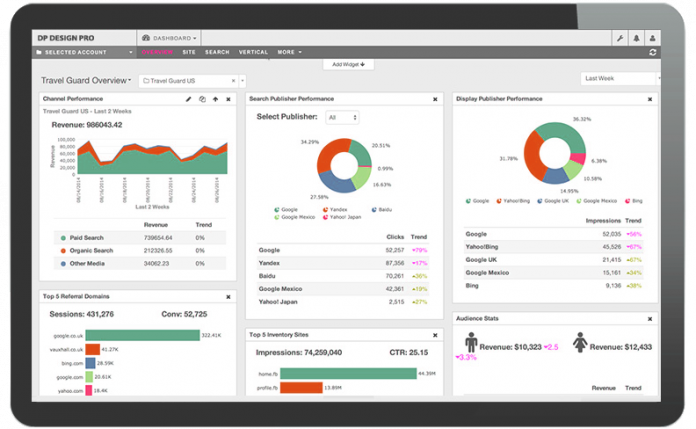Nowadays, everybody uses software applications. From cooking to traveling. buying to selling, and reading to photoshop, there is an application for everything in the market. One can even buy a car or a house using these applications. Software application development has made everything handy that when you open your PC or mobile, you will find various apps that can help in making your day-to-day life hassle-free. These software apps have so many benefits, and the majority of these apps are available for free. This shows that the advancement in technology has reshaped our routine life.
With this wide range of applications, we can easily and quickly complete our tasks. Work becomes simpler with the innovations of these CRM solutions. All these applications fall under various categories such as IT development software, mobile applications, enterprise software, web applications, and more. But the two main categories are web applications and enterprise applications. There are some challenges with enterprise software applications and web apps, but more than that they offer tremendous benefits to any business. Therefore, in this blog, we will go through both these types of software applications and have a look at their differences.
What is Enterprise Application?
Enterprise applications are the systems that can effectively respond when it comes to resolving operational challenges of businesses. For any business, various enterprise applications are deployed. For instance, the accounting team of any company requires comprehensive ERP apps like SAP, but the business development department might require a scalable business intelligence application tool.
This shows that each department in an organization requires work-appropriate software to reduce everyday challenges. Besides, each of the applications must be able to communicate with each other through an uninterrupted channel. This helps in obtaining an operational advantage. Because of this, enterprise application integration (EAI) is considered to be very crucial to ensure smooth communication between systems and applications. Besides, it allows different business types to get access to real-time data and efficiently follow the data-driven approach.
Advantages of Enterprise App
- Operation Analytics
- Excellent Configurability
- High Data Capacity and Scalability
- Extensive Interoperability
- Disaster Recovery and Redundancy
- Exceptional Identity Management
- Assured Privacy and Security
Disadvantages of Enterprise App
- With enterprise apps, there is no clear visibility into the system’s structure.
- The requirement of the enterprise application space is constantly changing and very dynamic which might not be catered to well by the developers.
- One might lose the track of information and details that he might think is not important at that time but is relevant later on.
Working with Enterprise Application
Enterprise application technologies are constantly evolving by coming up with simplified business management solutions. Application service providers offer unique and diversified cutting-edge enterprise software in different forms like progressive web apps, software as a service (SaaS), and business web application services. Besides, there are many different types of enterprise apps available in the market that can be accessed in different integrated devices and platforms that are exclusively for remote accessibility and in-house functionalities.
In addition to this, as time passes by, cloud technologies are taking over the tech world and because of this many enterprises are shifting their infrastructure toward the cloud. And for this, businesses choose their industry-appropriate enterprise applications.
What is a Web Application?
Web applications are universal in nature. They serve people everywhere around the globe. A web application is used by a company as a promising productivity tool for individual or commercial use cases. It can also be called a web-based computer program that uses a web browser to perform one or more functions. People can access a web application from anywhere over the internet, and this type of application is responsive to every device and operating system.
Advantages of Web App
- Secure data centralization
- Responsive design with execution cycle that is time-saving
- Cost-effective app experience
- Seamless app integration and cross-device functionality
- Uninterrupted app services
- Severs multiple users at a time
Disadvantages of Web App
- In web apps, security and safety are reduced.
- If the website fails, then the application fails.
- Being linked directly to a web browser, the size of the web app is increased and this lowers the performance.
- Having awareness about the web app is difficult as it is not available on the app store or play store.
Working with Web Application
Web applications are something that works in a client-server architecture. It works with distributed application layers. In a web application, the functional network involved can be an application server, web server, and database.
The working cycle of a web application starts when a user prompts via an interface or a web browser. Then the web server pushes the request ahead to the application server and that is when the request is executed. This cycle consequently keeps on querying the database application server and it keeps on the process of executing the result and sending it back to the web server.
Basically, a web application is created with a browser-appropriate server and client-side scripts like HTML, PHP, APS, and JavaScript. Therefore, when the codes are perfectly intersected, an excellent web application comes alive and it helps in catering to the request of users.
Conclusion – Enterprise Applications Vs. Web Applications
As seen in this blog, the main aim of web applications and enterprise applications is to intersect at some point. Both have the intention to serve the users and perform the task without any problem. Enterprise applications have a lot of tasks to handle while web applications do not have that much load. But, both of these applications come with complex network and server architecture when it comes to delivering the service continuously. Furthermore, enterprise apps have more technological attributes than web apps to simplify the complex activities of the organization. So, both are good, but to go with which one, is completely the company’s choice and this choice depends upon the type of business and its requirements.








